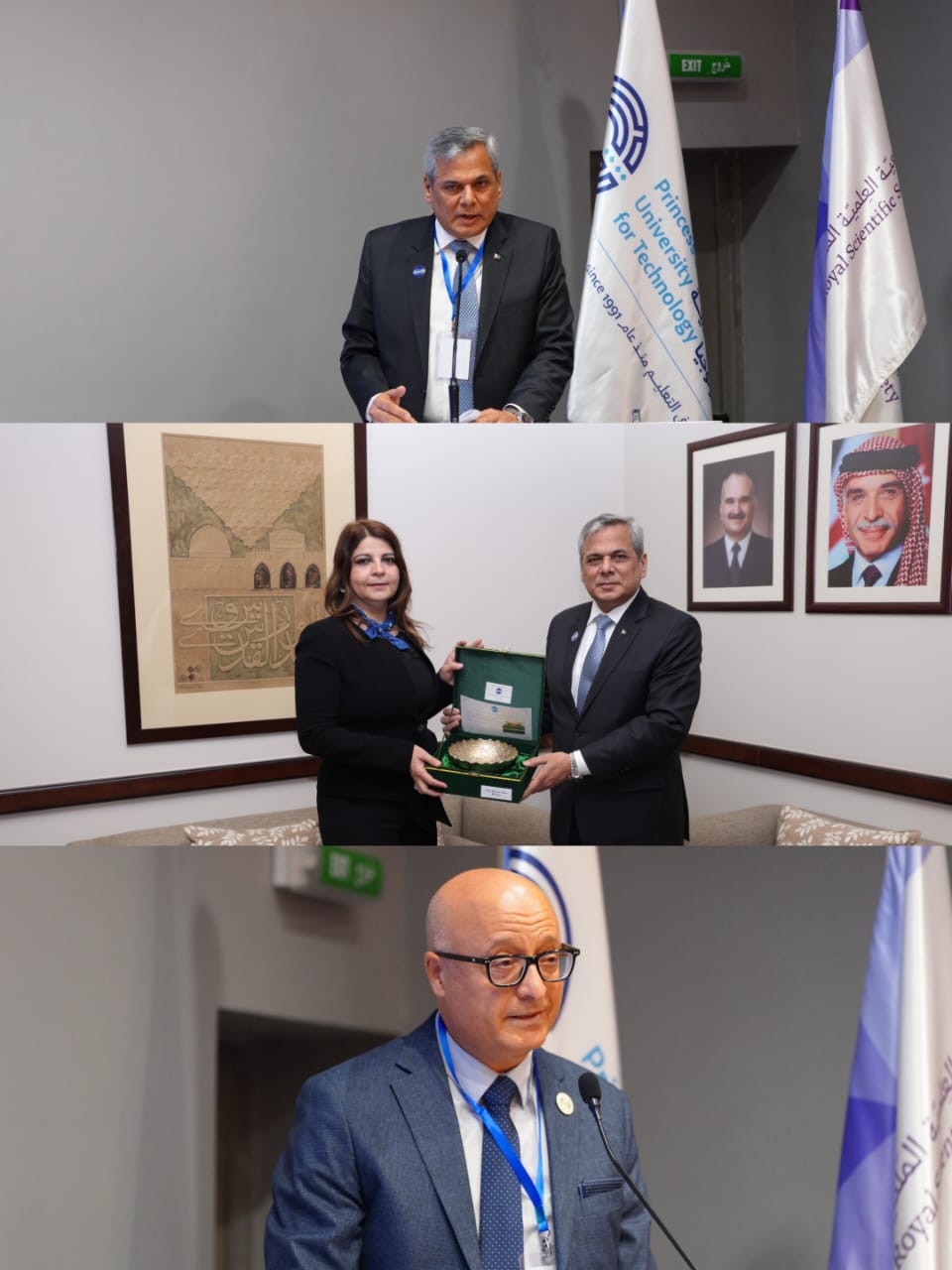WNAM REPORT: The Commission on Science and Technology for Sustainable Development in the South (COMSATS) convened the Third Meeting of its Technical Advisory Committee (TAC) at the Princess Sumaya University for Technology (PSUT), under the gracious patronage of Her Royal Highness Princess Sumaya bint El Hassan, President of the Royal Scientific Society (RSS)—Jordan’s premier scientific institution and one of COMSATS’ founding Centres of Excellence.
The high-level meeting convened eminent TAC members, including Prof. Dr. Wejdan Abu-Elhaija (PSUT, Jordan), Prof. Haseena Khan (University of Dhaka, Bangladesh), Prof. Rahmat Sotudeh-Gharebagh (University of Tehran, Iran), Dr. Bolanle Ojokoh (Federal University of Technology, Nigeria), Prof. Dr. Ishenkumba A. Kahwa (The University of the West Indies, Jamaica), and Dr. Chabi A. M. S. Djagoun (University of Abomey-Calavi, Benin), with Dr. Jauad El Kharraz (ECCO Climate Change, Italy) and Mr. Fernando Santiago Rodriguez (UNIDO, Vienna) joining virtually. Deliberations focused on providing strategic guidance for COMSATS’ future trajectory, reviewing the implementation of ongoing technical programmes, and refining the Organization’s strategic roadmap encapsulated in COMSATS Strategy 2025–2030. Central to the discourse was enhancing intra-network synergy among COMSATS’ 25 International Centres of Excellence through thematic research clusters, integrated capacity-building initiatives, and sustained inter-Centre collaboration calibrated to the evolving scientific and socio-economic imperatives of the Global South.
The meeting commenced with a detailed institutional presentation by Prof. Dr. Wejdan Abu-Elhaija, highlighting PSUT’s state-of-the-art academic curricula, multidisciplinary research portfolio, and extensive scientific outreach activities. The opening remarks were delivered by Ambassador Dr. Mohammad Nafees Zakaria, Executive Director of COMSATS, followed by Prof. Dr. Marcelo Knobel, Executive Director of The World Academy of Sciences (TWAS), and Prof. Dr. Ashraf Shaalan, Chairperson of the COMSATS Coordinating Council. Dr. Knobel, participating virtually, underscored the historical nexus between TWAS and COMSATS—both founded by Nobel Laureate Prof. Abdus Salam—and commended the enduring collaboration in advancing scientific excellence, capacity-building, and multilateral STI policy dialogue across the developing world.
A principal agenda item was the draft Working Paper for COMSATS Strategy 2025–2030, presenting a forward-looking framework to consolidate the Organization’s intergovernmental mandate, expand international research and training partnerships, and catalyze science-driven sustainable development. TAC members provided technical guidance on aligning research with the Sustainable Development Goals (SDGs), strengthening climate resilience, advancing digital transformation, enhancing academia–industry linkages, and strategically mobilizing the Network’s expertise in public health, clean energy, artificial intelligence, biotechnology, and climate adaptation. Additionally, focus of the deliberations also took into account the strengths of the CoEs, global trends vis-a-vis AI and Emerging technologies, need for synergy, and skill development for nurturing the youth.
Ambassador Zakaria briefed the Committee on preparations for the Fourth Summit of COMSATS (Heads of State and Government), scheduled for 2026 in Accra, Ghana, under the patronage of the Ghanaian Presidency. He also extended an invitation to PSUT for potential formal inclusion in COMSATS’ Network of Centres of Excellence, recognizing the University’s increasing engagement in frontier scientific domains.
The meeting concluded with summative remarks by the Chairperson of the Coordinating Council and the Executive Director of COMSATS, affirming the Organization’s enduring commitment to promoting South–South and Triangular Cooperation in science, technology, and innovation, and reinforcing its strategic role as a unifying platform for collaborative research and capacity-building across the Global South.


